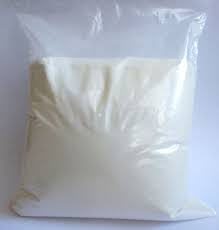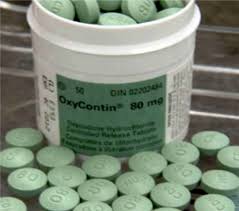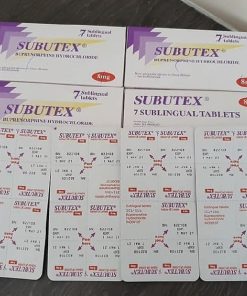What Are Opioids?
opioids for sale

Opioids are a class of drugs naturally found in the opium poppy plant and that work in the brain to produce a variety of effects, including the relief of pain with many of these drugs.
Opioids can be prescription medications often referred to as painkillers, or they can be so-called street drugs, such as heroin.
Many prescription opioids are used to block pain signals between the brain and the body and are typically prescribed to treat moderate to severe pain. In addition to controlling pain, opioids can make some people feel relaxed, happy or “high,” and can be addictive. Additional side effects can include slowed breathing, constipation, nausea, confusion and drowsiness.
Opioids by Name
Opioids are sometimes referred to as narcotics and although they do relieve pain, they do not fall into the same category as over-the-counter painkillers such as aspirin and Tylenol. opioids for sale
The most commonly used opioids are:
- prescription opioids, such as OxyContin and Vicodin
- fentanyl, a synthetic opioid 50–100 times more potent than morphine
- heroin, an illegal drug
Using Opioids
Opioid use does not come without risks. Regular use of these prescribed medications can increase your tolerance and dependence, requiring higher and more frequent doses. In some cases longer term use can lead to addiction (or what doctors will call “opioid use disorder”). In addition, opioids can restrict your ability to breathe when taken at a higher dose, and when misused, can lead to a fatal overdose. The risk of respiratory depression (slowing or even stopping your breathing), increases if you have never taken an opioid before or if you are taking other medications/drugs that interact with the opioid. Opioids, which can interact with diseases, too, should only be used if needed for pain, including if alternatives for pain control are not effective.
Be sure to review your current medications and disclose any past or present drug use with your doctor when discussing whether an opioid prescription is right for you. If you have a personal or family history of substance abuse, you may be at increased risk of becoming more easily dependent on opioids, and you should tell your health care provider about this. Also be sure to ask about alternative treatments. If you and your health care provider agree that an opioid prescription is the best option for managing your pain, follow all treatment instructions and “mind your meds” to keep yourself and your community safe. opioids for sale
Types Of Opiates. – opioids for sale
Opiates are prescribed for a wide range of medical needs. There are two main classifications for this type of drug: antagonists and agonists.
Antagonists, such as Naltrexone and Naloxone, are considered to be less addictive than agonists, though the potential for abuse still exists. They are often used to help with the detoxification process, which often takes place as the first part of addiction treatment.
Agonists mimic the effects of naturally-occurring endorphins in the body and produce an Opiate effect by interacting with specific receptor sites in the brain. Agonists include drugs like Morphine and Fentanyl, which are most commonly used in medical settings and have the strongest effects. Many substances in this category have a very high potential for abuse and addiction. Other examples of agonists include Hydrocodone, Oxycodone, Heroin, and Buprenorphine.
The most common Opiate agonists can be found in the list below.
-
Codeine
Manufactured to relieve mild to moderate pain and coughing, Codeine is less potent than other Opioid Painkillers. It is easily obtained with a prescription and is present in some over-the-counter medicines. Commonly abused among young adults, Codeine is often combined with sugary drinks to create a mixture referred to as “Purple Drank” or “Sizzurp.”
-
Darvocet/Darvon
Though now banned by the FDA, Darvocet and Darvon are Propoxyphene-based Painkillers that were responsible for thousands of hospitalizations and deaths during their prime. While prescriptions for these drugs are no longer written, a black market still exists for the substances. opioids for sale
-
Demerol
A Narcotic used to treat moderate to severe pain, Demerol is less frequently prescribed in modern times because of its high potential for addiction. Demerol is the brand name for Meperidine, which has euphoric effects similar to Morphine.
-
Dilaudid
Sometimes referred to as “Hospital Grade Heroin,” Dilaudid is a powerful type of Painkiller. Available in extended-release tablets, Dilaudid abuse can quickly lead to breathing problems or even death.
-
Fentanyl
A Synthetic Painkiller that is up to 100 times as potent as Morphine, Fentanyl is only prescribed in cases of severe pain. When used in conjunction with other Painkillers such as Heroin, Fentanyl can quickly lead to overdose and other dangerous side effects.
-
Hydrocodone
A main ingredient in many powerful Painkillers, Hydrocodone can be found in drugs such as Vicodin. It is typically combined with Acetaminophen or Ibuprofen, but the FDA has also approved pure Hydrocodone medications.
-
Methadone
An Opioid used for moderate to severe pain, Methadone is also used as a way to curb cravings for people who are addicted to other substances, including Heroin. Despite its use in helping to treat other addictions, Methadone is still an addictive substance in its own right.
-
Morphine
Morphine has been touted as a godsend for people suffering from severe chronic pain. It is also one of the most addictive substances known and responsible for a large amount of unintentional drug-related deaths nationwide.
-
Oxycodone
Oxycodone is sold under brand names including OxyContin and Percocet. It is a widely prescribed Painkiller and has a high potential for abuse.
Looking for a place to start? opioids for sale
Reach out to a treatment provider for free today.
Opioids Vs. Opiates
Many people have questions surrounding the difference between these two terms. As it turns out, both terms are often interchanged because these substances largely produce the same effects.
-
Opiates
Opiates are substances with active ingredients that are naturally derived from Opium. Common Opiates include Morphine and Codeine, both of which are directly made from the Opium found in poppy plants.
-
Opioids
Opioids are synthetically manufactured substances that mimic the natural effects of Opium. Some Opioids are fully Synthetic, while others are only partially Synthetic — meaning they still contain natural Opium.
Both Opioids and Opiates work by activating receptors in the brain and depressing the central nervous system. When receptors become activated by one of these drugs, they release “feel-good” chemicals known as endorphins. The release of endorphins caused by Opiate or Opioid use leads to feelings of relaxation and calmness, which can be highly addicting. opioids for sale
Ultimately, it doesn’t matter if a drug was derived from a natural source or was chemically manufactured. Both Opiates and Opioids carry an equal potential for abuse and addiction. Please discuss these risks with your doctor before taking an Opiate or Opioid medication.
How can you safely use opioids to manage pain?
Opioids can be part of an effective pain management plan, but to help avoid side effects and risk of addiction, you should use them only under a physician’s supervision.
Physician anesthesiologists — medical doctors who specialize in anesthesia, pain management, and critical care medicine — have extensive training and experience in prescribing opioid and non-opioid pain medications. If you need help managing pain, a physician anesthesiologist can work with you to make sure your pain is under control while minimizing side effects and the risk of addiction.
5 Questions to Ask Your Doctor When Prescribed Opioids
If you are prescribed opioids, follow these safety tips:
- Talk to your physician or physician anesthesiologist. Make sure you have considered all alternative pain-relieving medications that don’t carry an addiction risk. If opioids remain the best option, ask how to minimize the risks and side effects. Provide information on your medical conditions — and if you have taken opioids in the past, tell your physician how they affected you. Also tell your physician if you have a history of addiction to drugs or alcohol; people predisposed to alcohol abuse may be more susceptible to misusing opioids.
- Watch out for side effects. Some side effects of opioids may be mild, such as sleepiness and constipation, while others, including shallow breathing, slowed heart rate, and loss of consciousness, can be serious and may be signs of an overdose. Ask your physician what you should be aware of and what you can do to prevent potential problems. If you experience possible symptoms of an overdose, contact your doctor or call 911.
- Take opioids only as directed. Follow your physician’s directions, and read the prescription label. If you take other medications, ask your physician whether it is also safe to take opioids.
- Prepare for surgery. If you are taking opioids and preparing for surgery, talk with your surgeon, the physician anesthesiologist, and other physicians who are treating you. Chronic use of opioids increases your risk of complications from surgery and can lengthen your hospital stay. Your medical care team can help you safely manage your pain before surgery.
Also ask your physician about other pain management alternatives, including:
- Combination therapy. Opioids by themselves may not always fully control your pain. Combining opioids with other medications or nonmedication treatments, while under the care of a physician, can improve your pain management and result in your needing a lower dosage of opioids.
- Nondrug therapies. Many people find relief with alternative therapies, such as biofeedback, meditation, massage, and acupuncture. You may also get relief with interventional therapies such as nerve blocks, or surgical procedures in which the nerves causing the pain are cut. A physician anesthesiologist or other pain medicine specialist can help you find what works best for you.
- Injections or implants. If you are having muscle spasms or nerve pain, an injection of local anesthetics or other medications can help short-circuit your pain. If you have chronic pain in your back, arms, or legs, a pain medicine specialist might suggest spinal cord stimulation, in which a device is implanted in your back and blocks pain by delivering electric pulses to your nerves and spinal cord.
OPIOIDS
OPIOIDS
OPIOIDS
OPIOIDS
OPIOIDS
OPIOIDS
OPIOIDS
OPIOIDS
OPIOIDS








